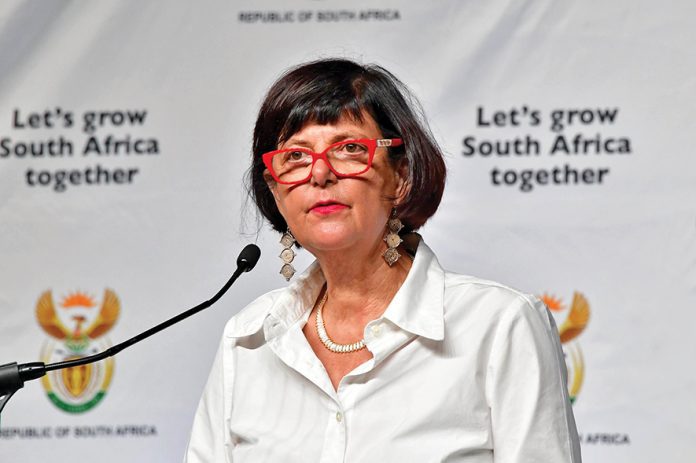In a bid to resolve a legal dispute that threatens to compromise national aviation security, Transport Minister Barbara Creecy has ordered the Airports Company South Africa (Acsa) board to enter mediation talks with Airports Coordination Services (ACS) – the company responsible for baggage handling services at airports around the country.
Creecy issued a ministerial order to Acsa’s board after meeting with them last week to get a briefing on the multiple legal blows that the entity has suffered over Hold Baggage Screening (HBS) services at South Africa’s major airports, raising concerns about potential security vulnerabilities.
Multiple review applications
The protracted legal battle between Acsa and ACS generated multiple review applications, interdictory proceedings, and related appeal proceedings in the High Court, creating a complex web of litigation that threatens to undermine the effective operation of critical security infrastructure.
“In this regard, I am satisfied that intervention is necessary to prevent potential disruption, compromise of national security, and reputational harm,” Creecy emphasised, highlighting the government’s growing concern about the dispute’s potential to affect South Africa’s aviation security posture.
The conflict between the two parties arises from the operation of HBS systems, which serve as the primary defence against security threats in South Africa’s aviation network.
Global aviation safety standards
The screening systems scan passenger luggage for explosives, weapons, and other prohibited items before the bags are loaded onto aircraft – a critical security measure mandated by international aviation safety standards.
Acsa operates South Africa’s nine major airports, including OR Tambo International, Cape Town International, and King Shaka International.
The state-owned entity has been embroiled in a legal showdown with ACS over the provision and maintenance of these essential security systems.
The disagreement also involves the South African Civil Aviation Authority (SACAA), the regulatory body responsible for overseeing aviation safety and security standards in the country.
Security Concerns Drive Intervention
Creecy said she was deeply concerned over the potential impact of the ongoing litigation on aviation security.
“I am concerned about the negative impact the protracted litigation could have on the integrity and reliability of HBS as the first line of defence against threats to the aviation system at Acsa’s airports,” she said.
Creecy’s ministerial order to Acsa board members establishes a comprehensive mediation framework designed to address both immediate operational concerns and long-term strategic issues.
Mediation to address critical areas
• Transitional Issues: The immediate focus involves ensuring the continued efficient functioning of HBS systems across Acsa’s airports while maintaining compliance with regulatory and international safety frameworks. This includes implementing interim maintenance measures and determining whether ACS or Acsa should install HBS maintenance equipment, including crucial backup units.
• Statutory Responsibility: A key component of the mediation involves clarifying which entity bears statutory responsibility for providing HBS and related services, with implications for the application of constitutional procurement requirements under Section 217.
• Long-term Solutions: The mediation must address the broader provision of HBS services and maintenance, regulatory compliance, budgetary constraints, passenger safety considerations, potential agreement revisions, and the commercial relationship between the parties.
Airports Company Act
The ministerial order will remain in force until withdrawn or amended by the minister, and Acsa is legally required to take all necessary steps to comply with its provisions under Section 10(4) of the Airports Company Act.
The mediation process represents a significant intervention by government to prevent a commercial dispute from potentially compromising critical national infrastructure and aviation security systems that protect millions of passengers annually.



